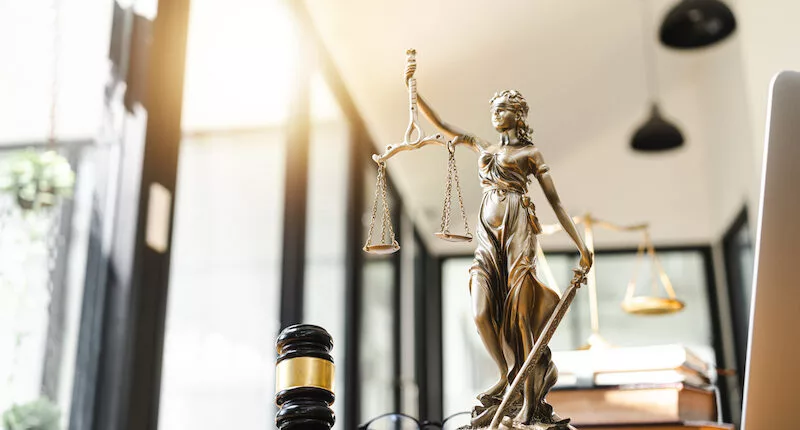What is the Burden of Proof?
What does the burden of proof mean exactly? This is what you should know under California law.
Read further on now.
Introduction
Although just about anyone can file a civil case in California and prosecutors can file the cases in criminal court, no one will get very far at all if they cannot prove their case.
The burden of proof in this state is the duty to establish the elements of the person, persons, or company that are subject to the claim. They must show that the claim is valid (or invalid) based on facts and factual evidence.
Let’s take a closer look at how the burden of proof arises in the different types of cases.
What California Law Says
California law defines the burden of proof in the following way:
CA Ev Code § 115 (2019): “Burden of proof” means the obligation of a party to establish by evidence a requisite degree of belief concerning a fact in the mind of the trier of fact or the court. The burden of proof may require a party to raise a reasonable doubt concerning the existence or nonexistence of a fact or that he establish the existence or nonexistence of a fact by a preponderance of the evidence, by clear and convincing proof, or by proof beyond a reasonable doubt.
Except as otherwise provided by law, the burden of proof requires proof by a preponderance of the evidence.
(Enacted by Stats. 1965, Ch. 299.)
The Burden of Proof in Civil Cases
The burden of proof in civil cases follows different standards depending on the specifics of the case. For instance, is the case about money? Or is it about property? There are three main standards when it comes to the burden of proof. They include:
- Preponderance of Evidence
- Clear and Convincing Evidence
- Beyond a Reasonable Doubt
While California requires proof by a preponderance of evidence, as stated above, the level of factual proof increases as you make your way down this list.
Preponderance of Evidence. This standard is when the plaintiff is required to show that the claim is factual – more likely than not. In other words, it is more likely to be true than not to be true. And if it is more than 50 percent likely, then it may be considered true.
You find this burden of proof in many civil cases – especially those involving personal injury or civil liberty violations. Though, as common as it is, it is still not regarded as highly as other standards, including beyond a reasonable doubt as well as clear and convincing.
Clear and Convincing Evidence. This is another standard that is held in higher regard than the preponderance of the evidence as the evidence needs to be convincing. The plaintiff is required to establish that it is highly likely that the fact is true and that the defendant committed the act. This is usually found in the case of personal injury, fraud, restraining orders, conservatorships, probate, withdrawing life support, parental rights, etc.
Burden Shifting in Civil Cases
As we have discussed, in civil cases it is mostly up to the plaintiff to present evidence and convince a judge or jury that the defendant has committed whatever they are being accused of. However, the burden of proof doesn’t remain with the plaintiff. Quite often, it shifts to the defendant.
Once the plaintiff has presented their case and proof, it then can shift to the defendant. Known as affirmative defenses, this is when the defendant can place some of the blame back on the plaintiff – with proof. For instance, in the case of a car accident, the plaintiff could say that the defendant was distracted and didn’t see their car stopped – and ended up rear-ending their vehicle and causing damage. The burden can shift back to the plaintiff when the defendant proves that they stopped suddenly for no apparent reason.
Burden shifting can go back and forth until someone fails to meet the burden.
It is not uncommon for burden shifting to make use of things like:
- Photos and videos
- Medical records
- Testimony from expert witnesses, third parties, or other various witnesses
The Burden of Proof in Criminal Cases
Things in California’s criminal courts are a bit different. Ever heard the saying that a defendant is innocent until proven guilty? This is where that applies. Every defendant must be proven to be guilty by the prosecution or else they are always considered innocent. As a result, the burden of proof is always on the prosecution.
What happens if the prosecution fails to prove that the defendant committed a crime? Nothing. The defendant has nothing to prove and there is no shifting of the burden in this instance.
The standard in criminal cases is the highest – beyond a reasonable doubt. In this instance, there is an incredibly high chance that the defendant committed the crime and very little doubt that the defendant didn’t. This is often referred to as the highest evidentiary standard used throughout the entire legal court process. By the time the prosecution is done, there should be no question in the jury’s mind that the defendant most definitely committed the crime. Depending on the courts, sometimes it is said that the prosecutor must show moral certainty or absolute certainty that the offense was committed.
Why Your Need an Attorney
Hiring an attorney is an important step in the legal process when it comes to collecting evidence, proving a case, or proving that the plaintiff is to blame. It doesn’t matter how cut and dry a case may seem or how loud a piece of evidence may scream guilt – there is a proper way for cases to be handled and an attorney is a vital part of that.
What’s more, your attorney will be able to put together expert witnesses if needed, gather additional parties or witnesses, and even put together timelines, collect video footage, and so much more. To give yourself the best chance in your case, find an attorney that has experience in cases like yours and who has a proven track record. This will allow you to have the best chance of proving your case.
Are you in search for a certified attorney to represent you?
Let us help you find one today!


